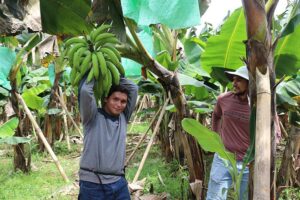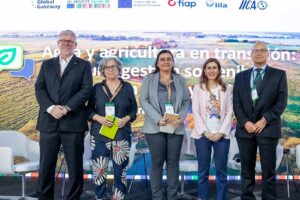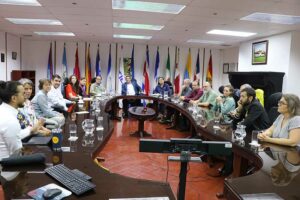The future of livestock farming is sustainable… and built by women’s hands
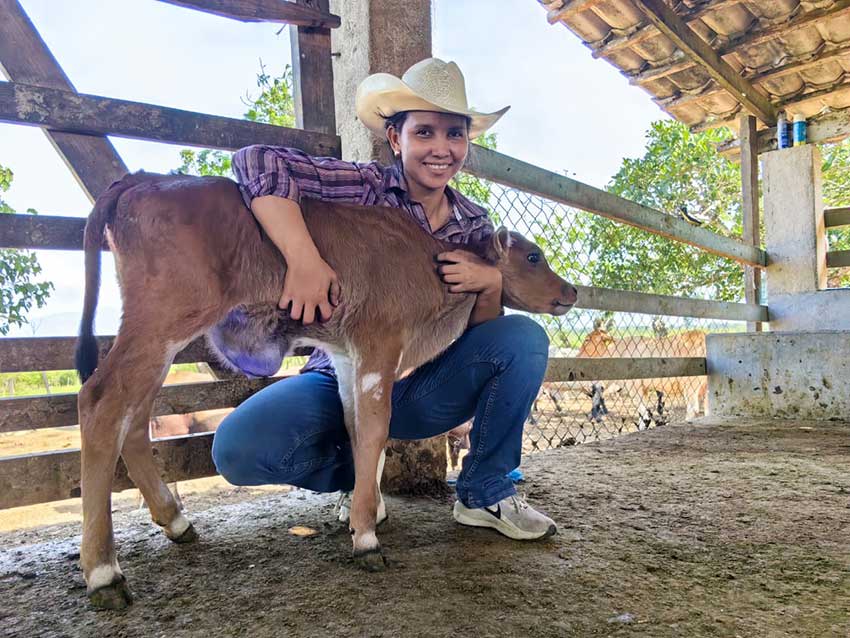
- Mirna María Lacayo Díaz, a medical doctor by profession, a rancher by conviction, and a dreamer by nature.
In the warm lands of Trujillo, Colón, Honduras, where the sun embraces the pastures and the wind brushes the trees, a woman decided to sow the future with her hands and her heart. Her name is Mirna María Lacayo Díaz.
Her story begins among the scent of freshly cut grass and the echo of cattle in the corral, where her father taught her that the land is not only worked — it is cared for, respected, and honored. Years later, upon returning to her hometown, Mirna discovered that her love for her family and for the countryside could also become a path toward change.
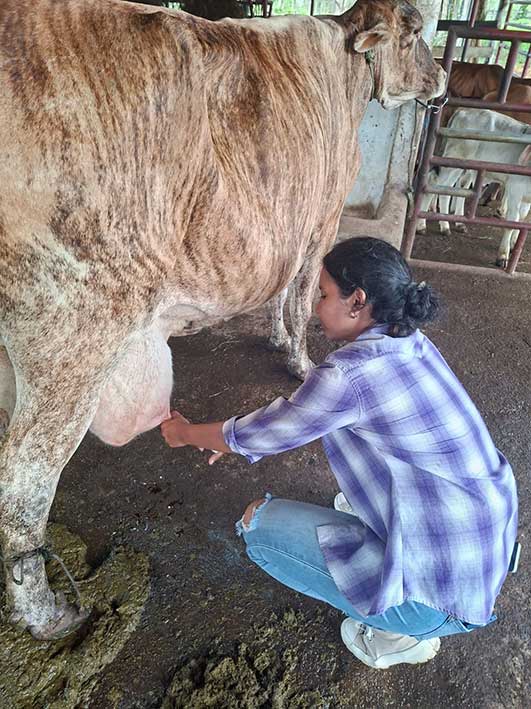
What began as a gesture to support her father turned into a personal mission. With endless curiosity and determination, she embarked on a journey of learning that led her to see her farm through different eyes: not just as a place of production, but as a living ecosystem capable of regenerating and giving life.
Thanks to the support of the project Transforming the Honduran Livestock Sector Toward a Low-Carbon Economy, known as MAF-Livestock-HN, funded by the Mitigation Action Facility (MAF) and implemented by CATIE (Tropical Agricultural Research and Higher Education Center), Mirna has succeeded in transforming her farm into a model of sustainable practices — combining science, passion, and purpose.
Today, her land thrives with hope: trees offering shade to the cattle, soils that breathe, and water flowing again through the channels she helped restore.
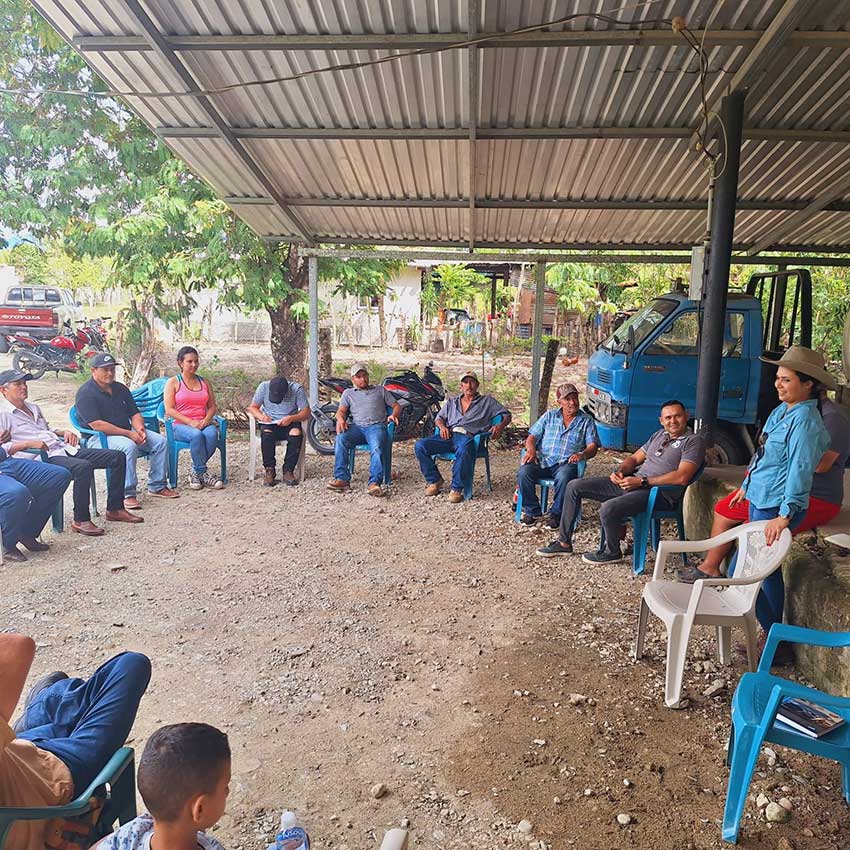
Recently, the Food and Agriculture Organization of the United Nations (FAO) recognized her as a young female leader in sustainable and resilient livestock production. Her commitment to the environment and responsible production began in 2022, when she decided to eliminate the use of chemicals on her farm, choosing instead a more natural and healthy management system.
Very soon, with the support of the project’s financial mechanism, she will implement an irrigation system that will strengthen her dream even further: resilient, low-carbon, life-centered livestock farming.
Through the training she has received — in pasture establishment, medication management, mastitis care, and screwworm control, among other topics — Mirna has strengthened her technical knowledge. control del gusano barrenador, entre otros temas—, Mirna ha fortalecido su conocimiento técnico.
From the Tocoa Regional Sustainable Livestock Platform, promoted by the project together with the National Federation of Farmers and Ranchers of Honduras (FENAGH), Mirna shares her experience with other producers, sowing inspiration and proving that sustainability also has a woman's face.
Mirna doesn’t only produce milk; she produces future.
In every step she takes, her story reminds us that when knowledge and commitment meet, sustainable livestock farming flourishes.
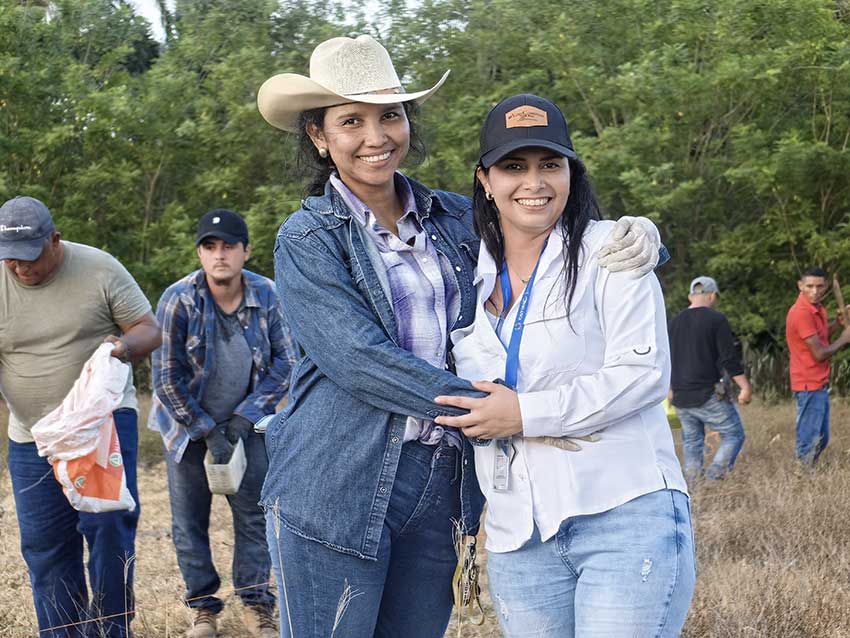
More information:
Juan Carlos Flores
National Coordinator Honduras
Communicator
Project Transforming the Honduran Livestock Sector Towards a Low-Carbon Economy (MAF-Ganadería-HN)
CATIE
juan.flores@catie.ac.cr
Written by:
Gina Samanti Puerto Morazán
Communicator
Communicator
Project Transforming the Honduran Livestock Sector Towards a Low-Carbon Economy (MAF-Ganadería-HN)
CATIE
gina.puerto@catie.ac.cr

